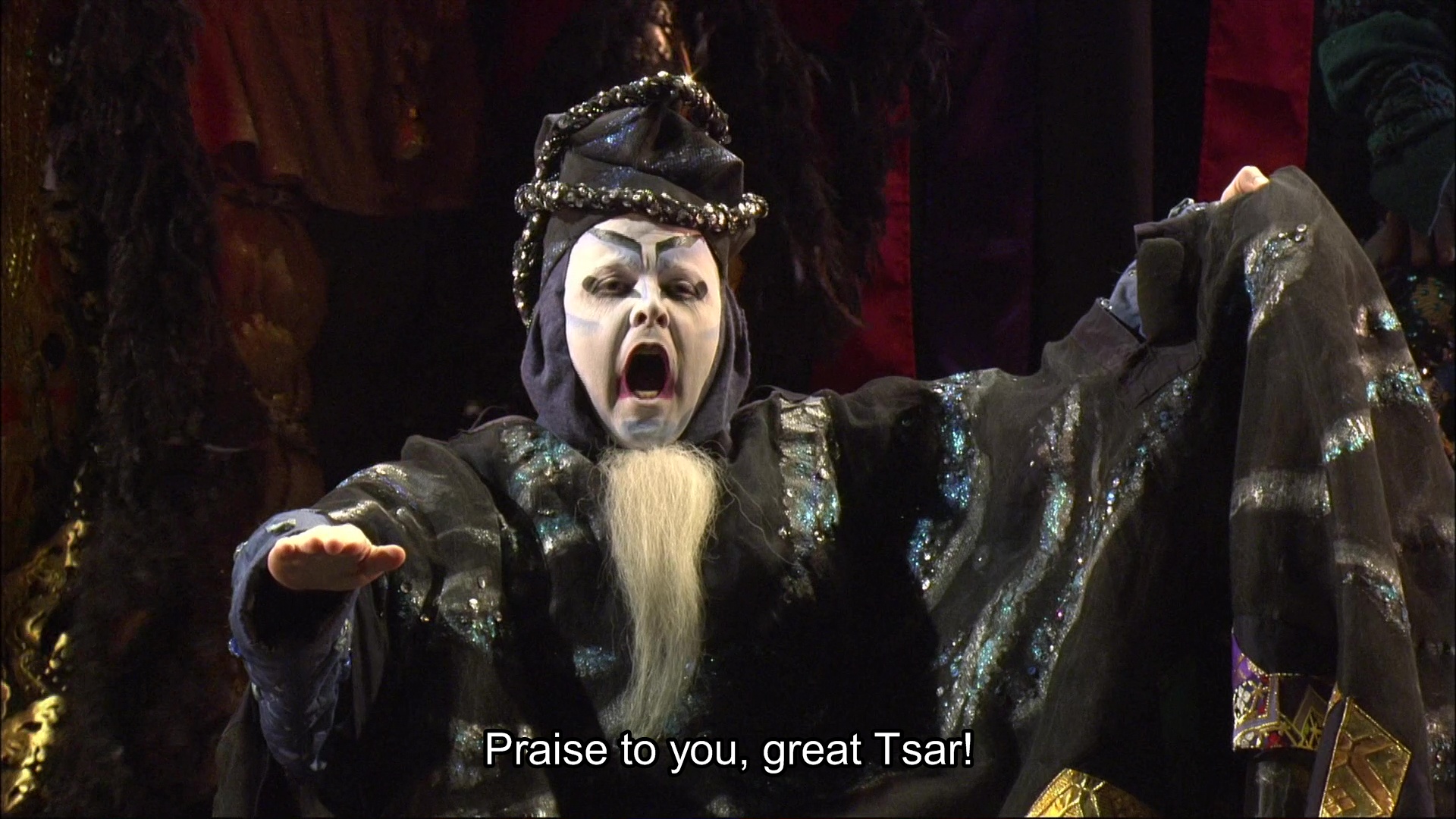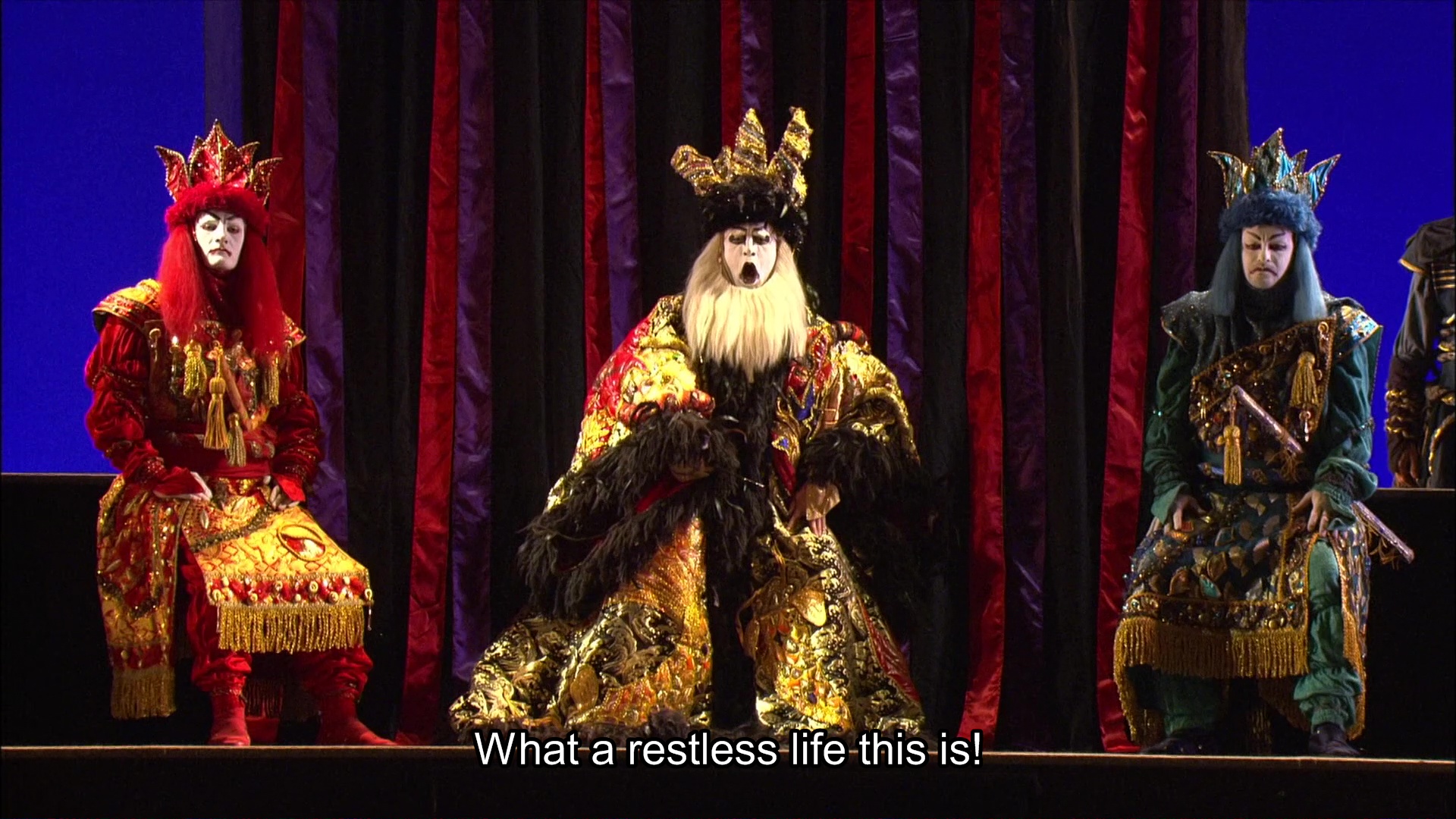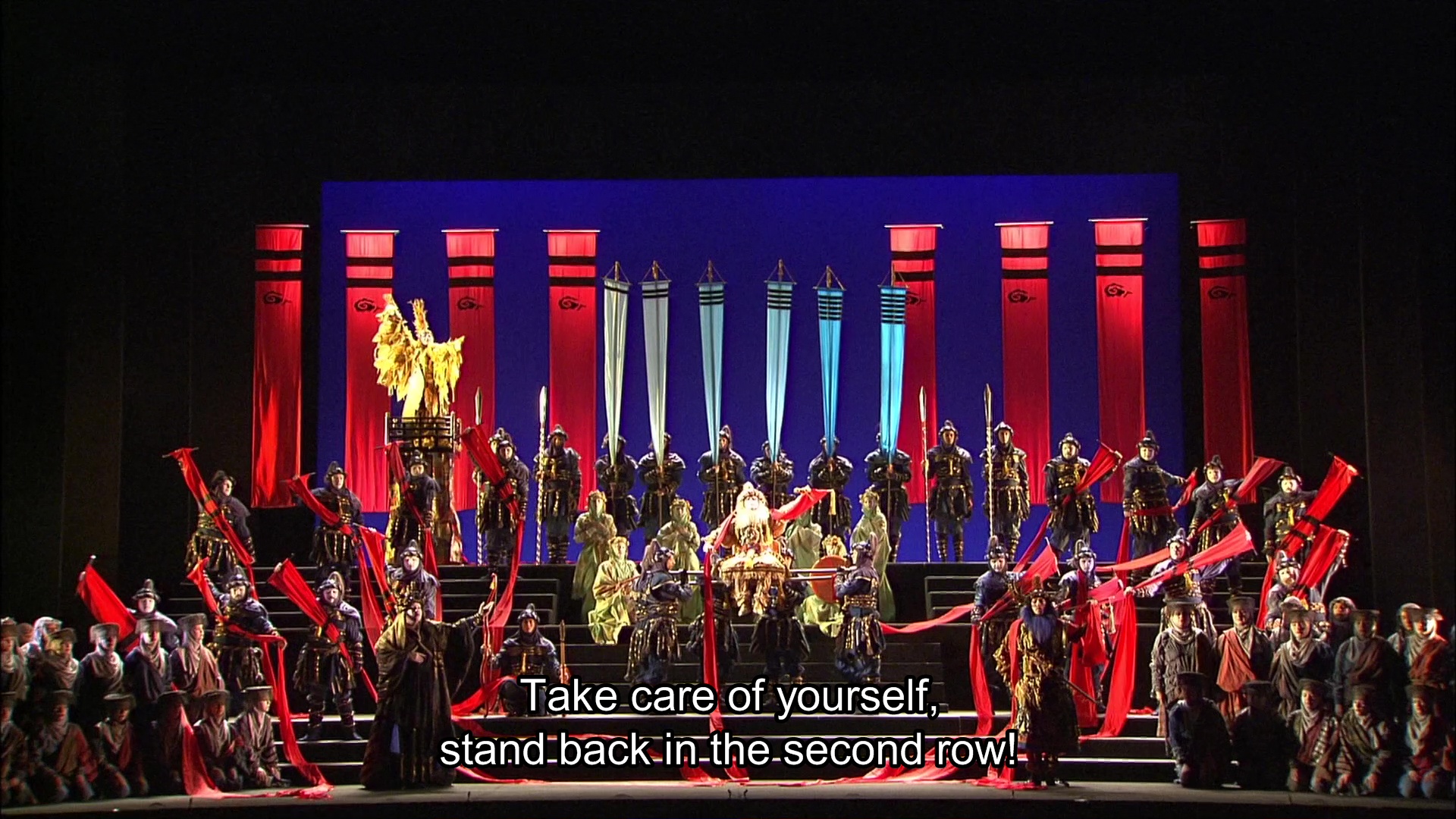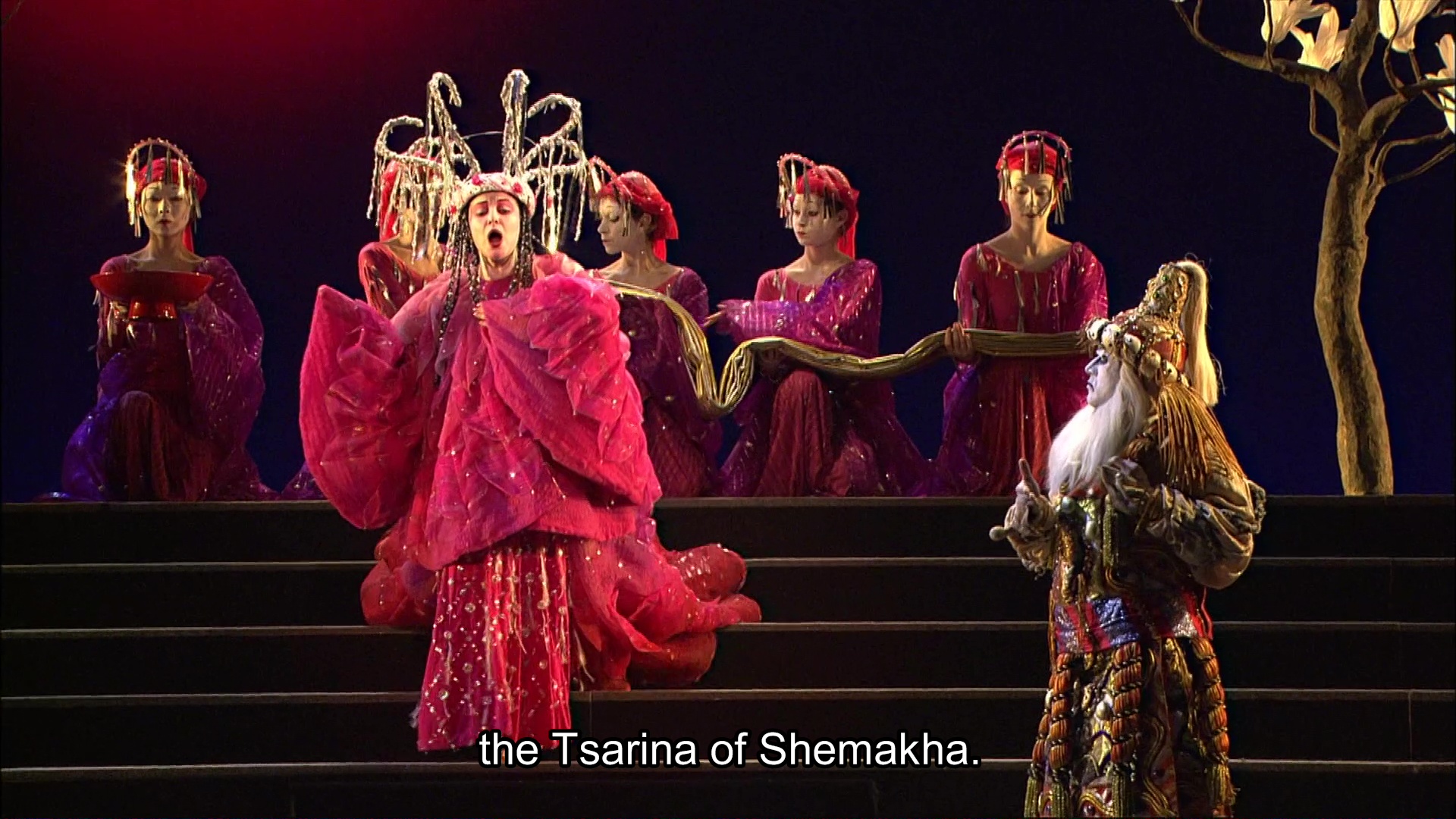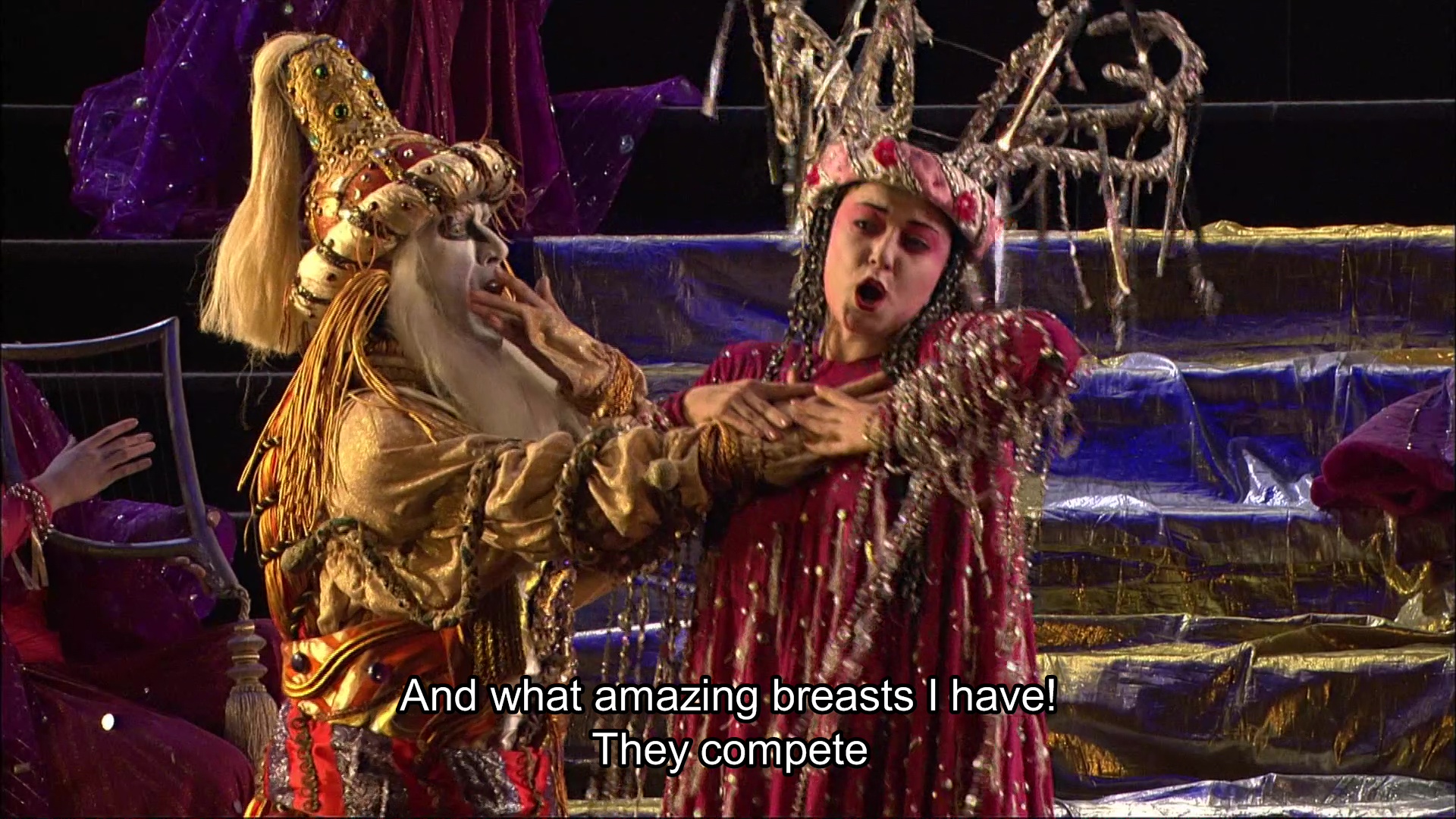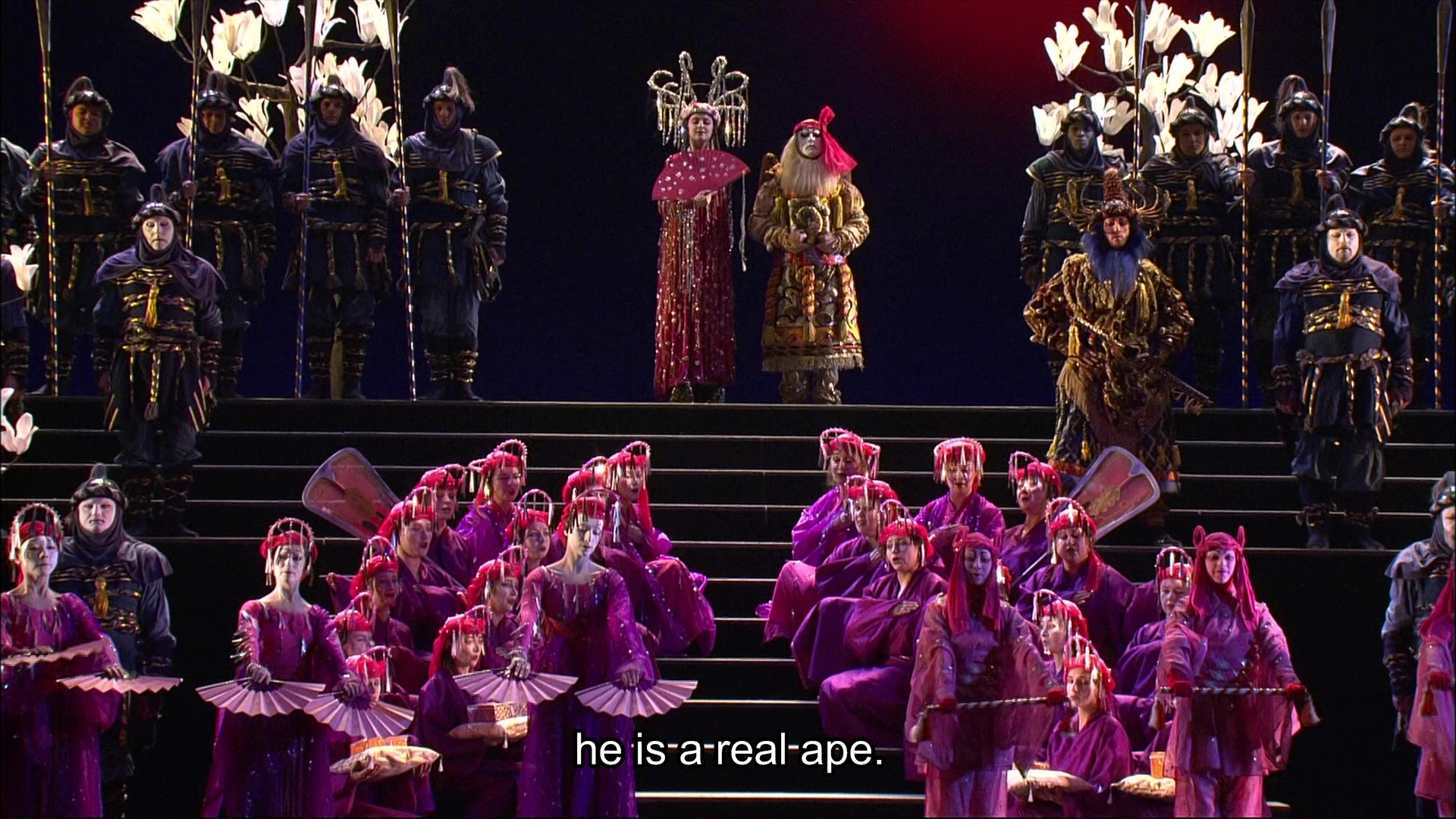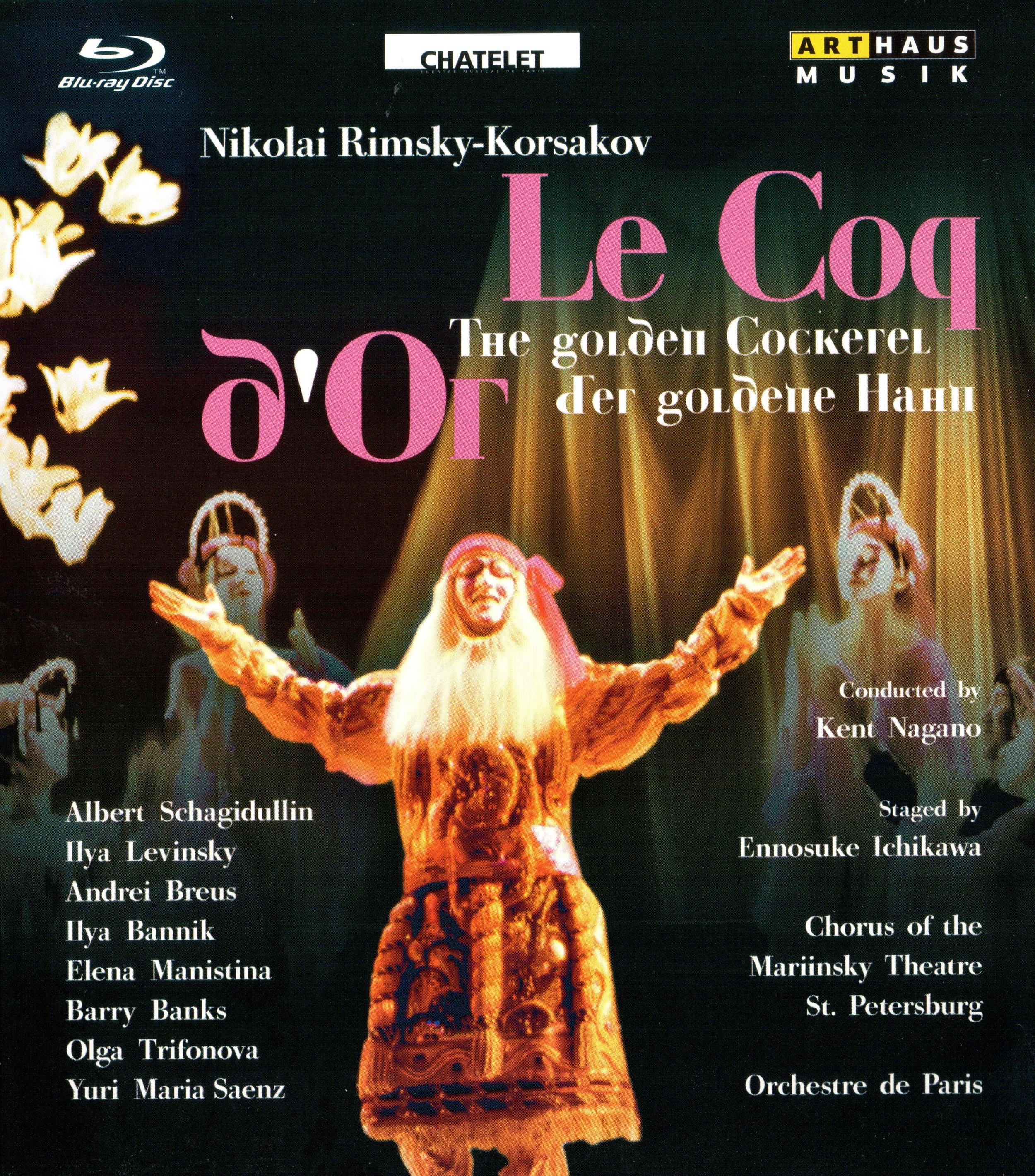
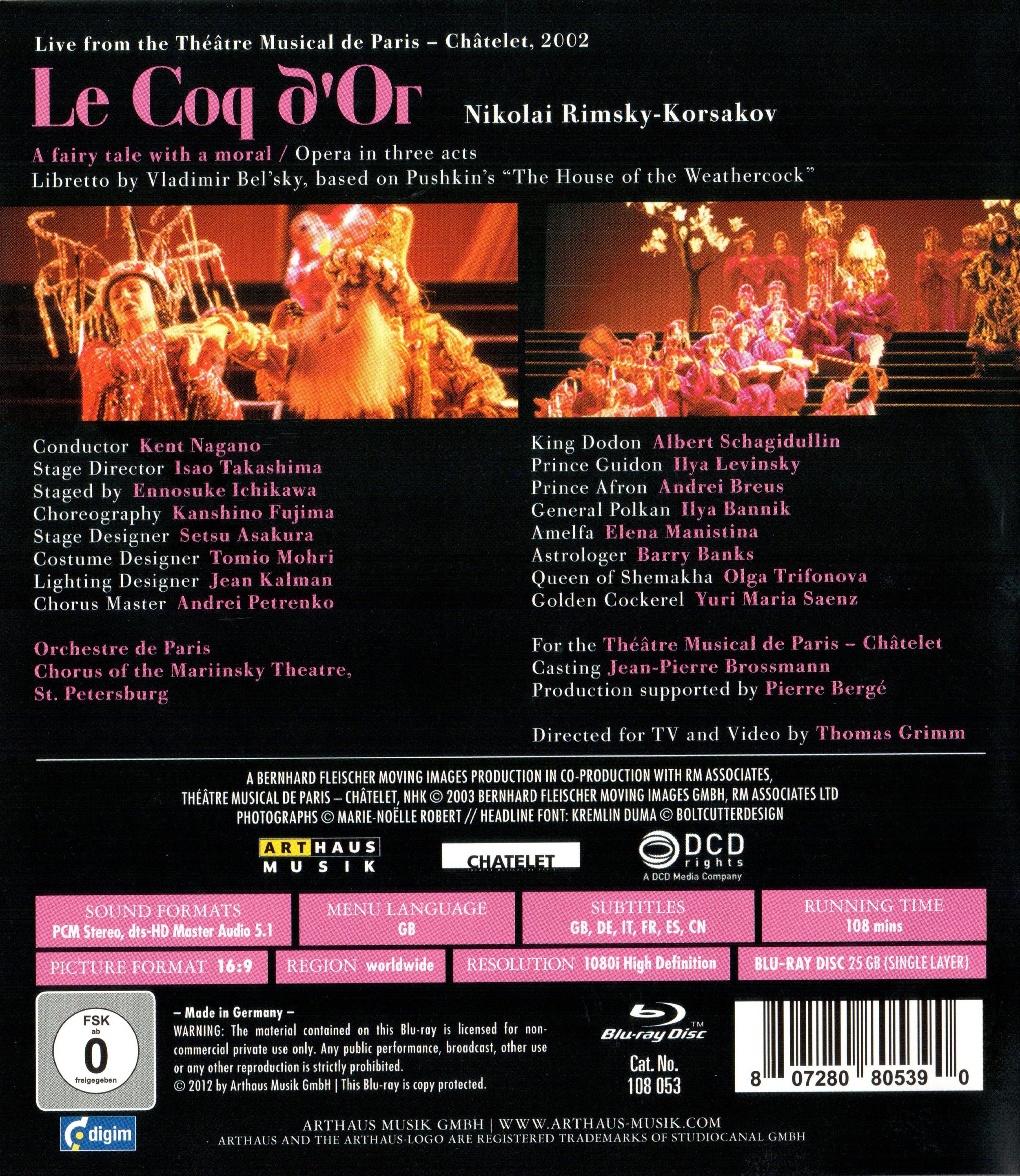
Nicolas Rimsky-Korsakov Le coq d’or (The Golden Cockerel) opera to a libretto by Vladimir Bel’sky. Staged 2002 by Ennosuke Ichikawa at the Théâtre Musical de Paris - Châtelet. Stars Albert Schagidullin (King Dodon), Ilya Levinsky (Prince Guldon), Andrei Breus (Prince Afron), Ilya Bannik (General Polkan), Elena Manistina (Amelfa), Barry Banks (Astrologer), Olga Trifonova (Queen of Shemakha), and Yuri Maria Saenz (Golden Cockerel). Kent Nagano conducts the Orchestre de Paris and the Chorus of The Mariinsky Theatre (Arndrei Petrenko Chorus Master). Stage direction by Isao Takashima with assistant Nobuo Ichikawa; set design by Setsu Asakura with assistant Yasue Itod; costumes by Tomio Mohni; make-up by Suzanne Pisteur; lighting by Jean Kalman; choreography by Kanshino Fujima with assistant Sakon Fujima. Directed for TV by Thomas Grimm. Sung in Russian with subtitles in English, German, Italian, French, Spanish, and Chinese. Released in 2012, disc has 5.1 dts-HD Master Audio sound. Grade: A-
Many artists have pushed the boundaries of taste prevalent in society, but the artists behind Le coq d’or actually risked their lives to bring this to us. The libretto was taken from Pushkin’s fairy-tale style poem written in 1834 as a thinly-veiled criticism of absolute monarchy in Russia. You’ll remember that Pushkin was shot to death 3 years later in what was legally considered a duel between aristocrats but which in reality was a kind of assassination.
The 1st Russian Revolution occurred in 1905; and in 1906, the Japanese defeated Russia in Manchuria. Rimsky-Korsakov wrote Le coq d’or in 1907 as a wicked satire attacking the ineptitude of the Russian Tsar Nicolas at the same time that the Tsar reorganized his secret police into the feared Okhrana. The opera alludes to real aspects of Russian history at the time: the Astrologer reminds us of Rasputin and the Queen of Shemakha stands (we think) for the unpopular marriage of Tsar Nicolas to the German princess Alexandra.
Well, angina claimed the composer Nicolas before Tsar Nicolas could. But we should not view Le coq d’or as just another comedy — Rimsky-Korsakov had hide in the game.
Most of the cast and chorus in this production were imported from Russia. But first we see below the English tenor Barry Banks as the Astrologer. You will immediately note the most unusual costumes, wigs, and makeup — this production is performed in the style of Japanese Edo-period kabuki theater! For years we have been searching with no success for Japanese kabuki opera in Blu-ray. But the astonishing vision of Director Ennosuke Ichikawa and his team is the only thing we have encountered even suggestive of this. (Since we don’t know what real kabuki is, we wonder if this show is today a satire of kabuki just as it is was originally a satire of the Russian state.)
Centered below is Tsar Dodon (Albert Schagidullin), whose name was inspired by the extinct dodo bird. Dodon is flanked by his dim-witted and inept sons, Prince Guidon (Ilya Levinsky) on your right and Prince Afron (Andrei Breus) on your left. The Tsar whines about the many enemies he has made among his neighbors:
The heirs to the throne are full of absurd advice. You are hereby granted license to laugh as much and as loudly as you care to at all this:
The astrologer gives Dodon a kind of early-warning radar system in the form of a golden rooster. When danger appears, golden cock will sound an alarm and point in the direction of the threat. In 2002 videographer Thomas Grimm had, we think, fairly primitive HD video cameras, and he even used at least one old SD camera in his shooting plan. So the video resolution of the large-scale views is weak:
In German the line above is “Kikiriki.” In French “Cocorico.” In Spanish “Ouiquiriqui. In Italian “ Chichirichi.” For the song in Chinese, see:
But most of the images in the video file are pretty good. Next below we get a nice shots of Yuri Maria Saenz as the Golden Cockerel:
The role of the Golden Cock is fairly easy to memorize: the birdcall in Russian and the following text:
Dodon is too old now to ride a horse. So with full pomp and circumstance he sends his sons and all his troops into battle while he stays in bed:
No word returns from the soldiers! Eventually, Dodon treks to the battlefield. He learns that his sons divided the army into 2 battle-groups, which then destroyed each other in a blotched night attack. (Today this is called death by friendly fire.) And, next to the rotting remains of the slaughtered forces, Dodon finds a mysterious tent occupied by:
The Tsarina of Shemakha is the greatest military strategist in the history of warfare:
And also the greatest diplomat ever:
In a fantastic display of oriental sumptuousness and glitter, Dodon returns to his people as a bridegroom:
And all the while Dodon is being savagely mocked by Shemakha’s retinue. (By the way, Shemakha is apparently a real place somewhere in Russia. The name just happens to sound as ridiculous in English as it apparently does in Russian. Does “Shemakha” sound funny in German, French, Italian, Spanish, and Chinese?)
We had to show you these next two images of fantastic costumes:
Finally Shemakha is the greatest Tsarina in history — she really (pun intended) knows how to rule!
We hope we have convinced you to watch this production, which will surely be a benchmark against which future recordings of this opera will be compared. We will resist completely spoiling it:
When this first came out in 2012 (after success in the DVD market), we passed on reviewing it because the keepcase art seemed so crude and ugly. This is definitely proof that the book can be much better than the cover. Thanks to Wonk Lewis Chang for insisting that we would enjoy the disc he loaned us! These screenshots can only suggest how deliciously the satire in this work is spun out through the various scenes, especially the extended seduction of oaf Dodon by the clever and sexy Tsarina. If Tsar Nicolas had seen this production, he would have had composer Nicolas shot before the next morning.
Grade: Except for the soft full-stage images, this production has everything going for it. We don’t know what to make exactly of the exotic mise-on-scène except to say that it hugely energizes the rather simple plot. We have to knock this down from an A+ to a A- for weak resolution and the SD camera. But if our review inspires you to watch this, the technical issues should not bother you.
